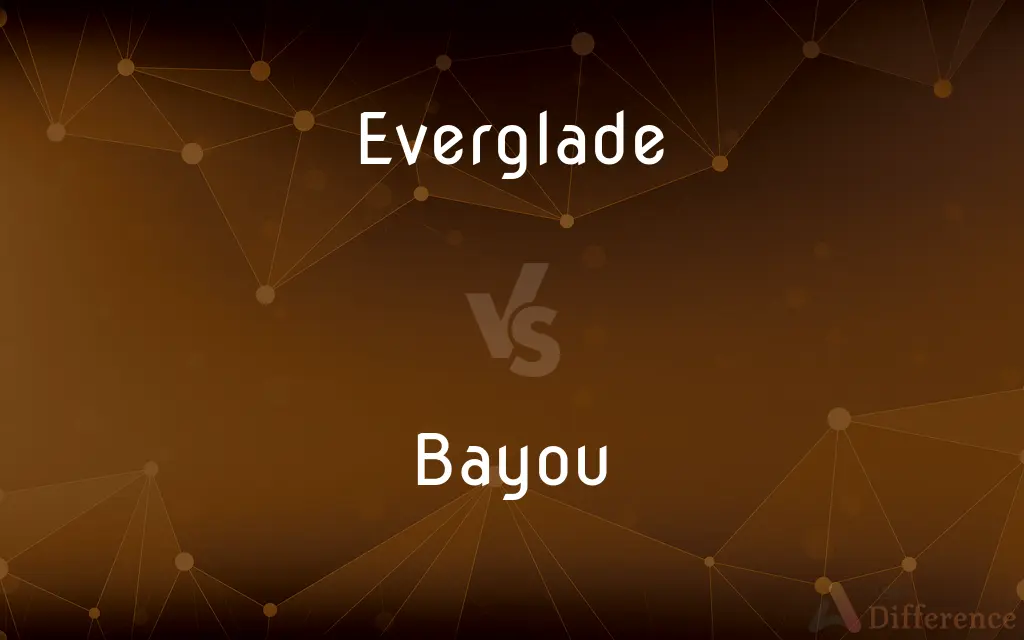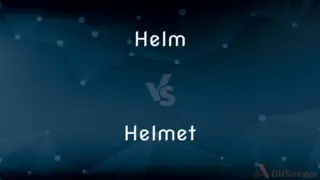Everglade vs. Bayou — What's the Difference?

Difference Between Everglade and Bayou
ADVERTISEMENT
Compare with Definitions
Everglade
A tract of marshland, usually under water and covered in places with tall grasses or sedges.
Bayou
In usage in the Southern United States, a bayou () is a body of water typically found in a flat, low-lying area, and may refer to an extremely slow-moving stream or river (often with a poorly defined shoreline), a marshy lake or wetland or a creek whose current reverses daily due to tides, and which contains brackish water highly conducive to fish life and plankton. Bayous are commonly found in the Gulf Coast region of the southern United States, especially in the Mississippi River Delta.
Everglade
A tract of marshland, especially one containing clumps of sawgrass and hammocks of vegetation
Bayou
A body of water, such as a creek or small river, that is a tributary of a larger body of water.
Everglade
A swamp or low tract of land inundated with water and interspersed with hummocks, or small islands, and patches of high grass; as, the everglades of Florida.
ADVERTISEMENT
Bayou
A sluggish stream that meanders through lowlands, marshes, or plantation grounds.
Bayou
A slow-moving, often stagnant creek or river.
Bayou
A swamp; a marshy (stagnant) body of water.
Bayou
An inlet from the Gulf of Mexico, from a lake, or from a large river, sometimes sluggish, sometimes without perceptible movement except from tide and wind.
A dark slender thread of a bayou moves loiteringly northeastward into a swamp of huge cypresses.
Bayou
A swampy arm or slow-moving outlet of a lake (term used mainly in Mississippi and Louisiana)
Share Your Discovery

Previous Comparison
Helm vs. Helmet
Next Comparison
Authorization vs. Authority














































